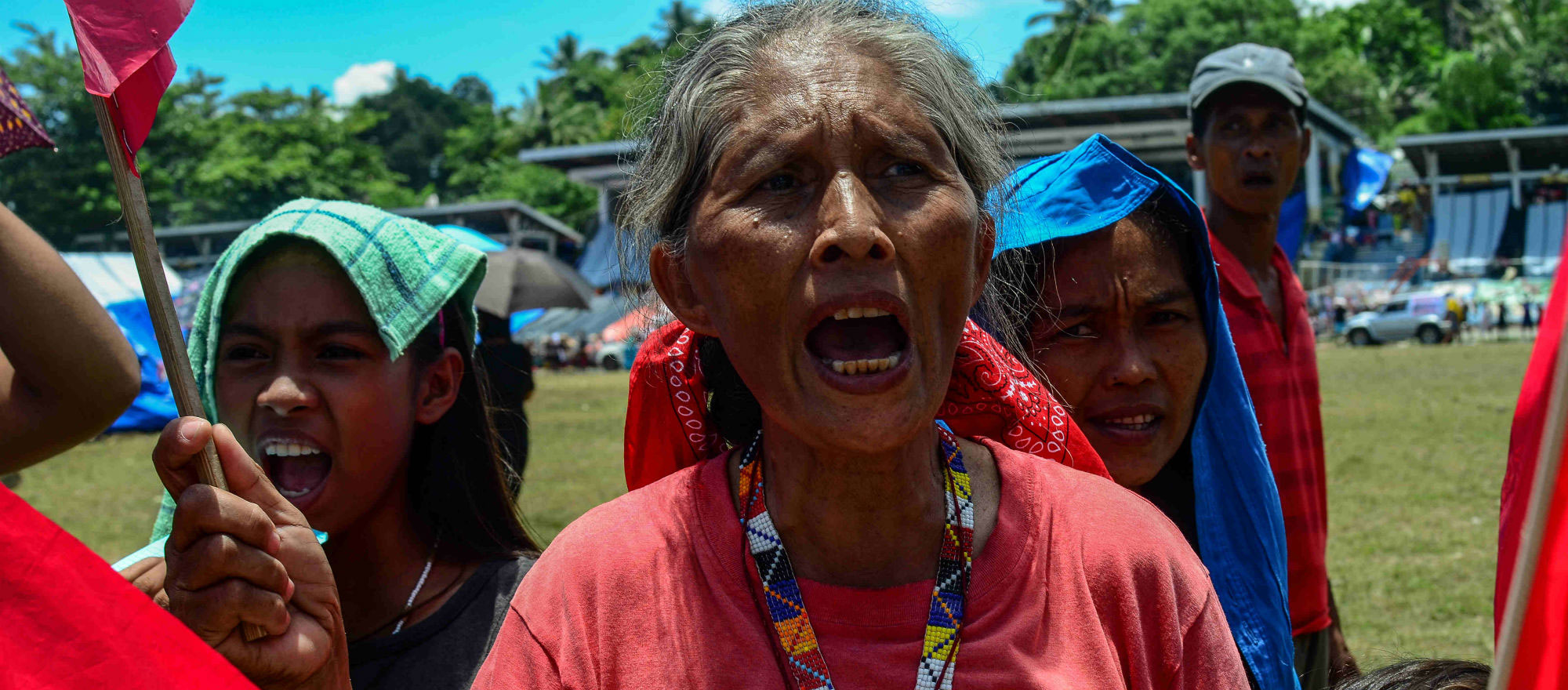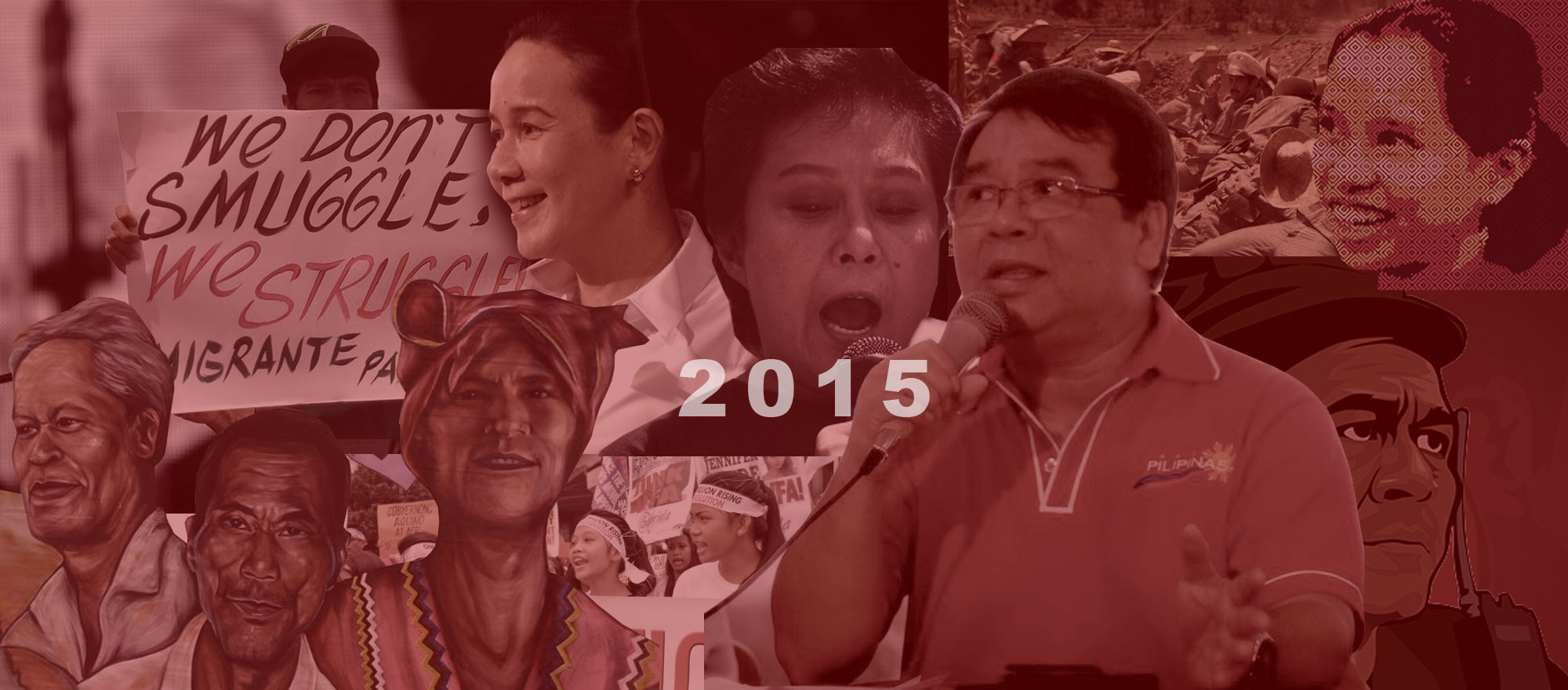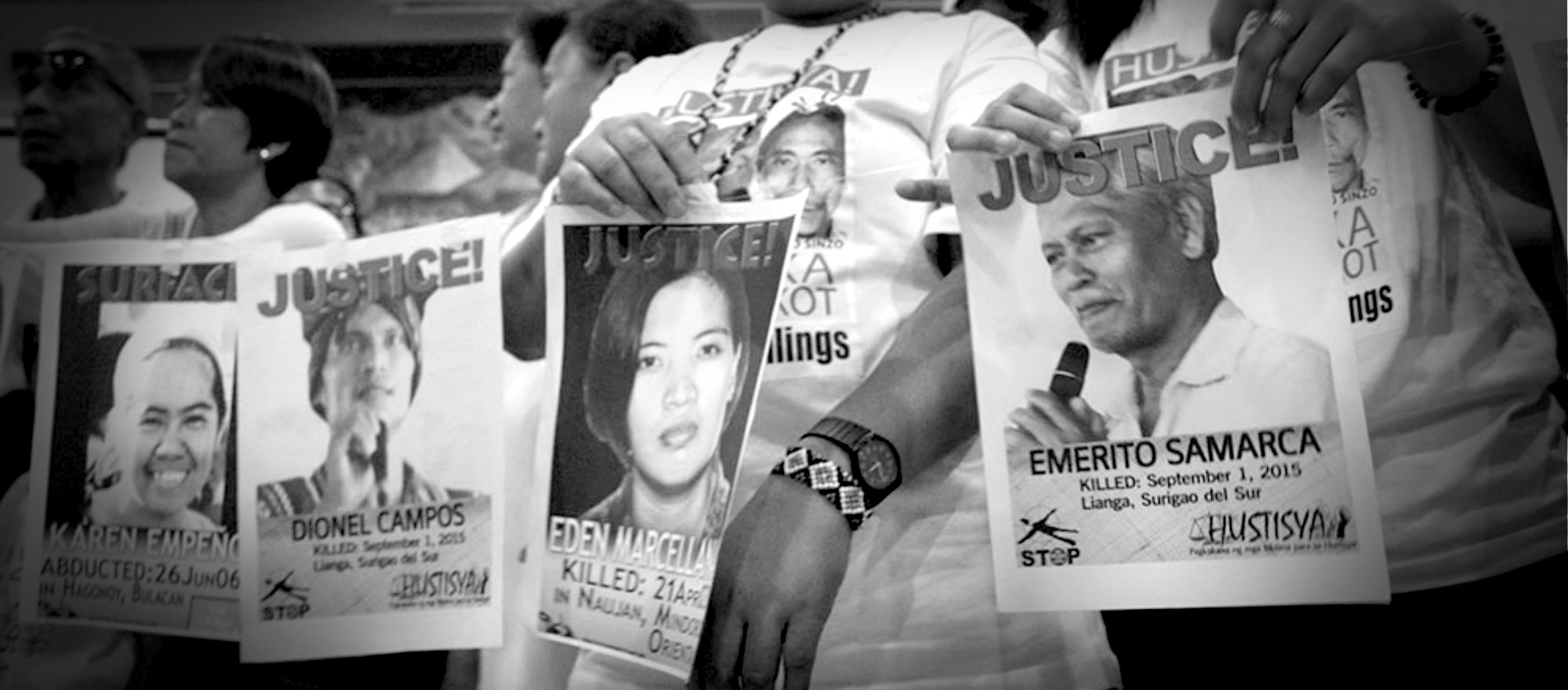Terror in Lumad communities continues
An independent team to investigate the human rights situation in the Lumad communities of Surigao del Sur discovers that the communities are still under the military’s grip.


The Lumad people remain a target. Their indigenous communities remain terrorized.
This is what the International Fact Finding Mission (IFFM) discovered in their five-day investigation in Lumad communities in Surigao del Sur province of Mindanao from October 26 to 30.
The IFFM was organized to give light in September 1 killings of three Lumad–namely Dionel Campos, Datu Juvello Sinzo, and Emerito Samarca. This incident sparked the evacuation of more than 3,000 Lumad from their ancestral lands, with 700 joining the long, arduous trip from Mindanao to Metro Manila for Manilakbayan ng Mindanao.
The IFFM also held a dialogue with the provincial governor, the Philippine National Police-Provincial Headquarters, and other local officials to give light on what happened on September 1 in Lianga, Surigao del Sur and afterwards. The IFFM also sought to hold a dialogue with the military, who refused to speak with the mission delegates.
Urgency
Dismayed and outraged by the Aquino administration’s response to the Lumad crisis, the IFFM said slammed what it described as Aquino’s insensitivity and unwillingness to resolve the issue.
Since the killings in Lianga happened, President Aquino only made one statement on the issue. “There is no campaign to kill anybody in this country. There is a campaign to go after the culprits of these crimes regardless of who they are,” Aquino said, when asked by media if there is state policy to kill Lumad people, especially those who resist large-scale mining operations and military operations in their ancestral lands.
“We sent these issues to Manila. Still, the national government appears weak and slow to respond. Even the initiatives that we get from the national offices came from the pressures by the victims who demanded immediate action and justice,” said Naty Castro, medical doctor and head of human rights group Karapatan in Caraga region.
The suspects remain at-large, even after the issuance of warrant of arrest against the supposed suspects on September 28. During a dialogue with the mission members, Philippine National Police Chief Inspector Michael Lozada, who is acting chief of the local police force’s provincial intelligence branch, said they cannot divulge the details of the case in order not to hamper the arrests of the suspects.
But even after being presented evidence of the military’s systematic attacks against the Lumad people, the police said they did not see the need to treat the killings as one that needs their special attention. “We see these as simple criminal acts that require police responses, investigation, and filing of cases in court,” said Lozada.
For his part, Surigao del Sur Gov. Johnny Pimentel said he especially asked the national government to act on the case, namely expedite the suspects’ arrest and disband the paramilitary groups. But these pleas fell on deaf ears.
“I already went to secretaries of the national agencies. I went to the senators. I wanted to get an appointment with the President. I went to several national government agencies. I brought the reports. I brought photos of the victims. I gave the report to Senator (Teofisto) Guingona (III). I gave the report to (Peace Process) Sec. (Teresita) Deles, to Sec. Sarmiento, and to almost everyone important. I already gave (the reports) to the NBI (National Bureau of Investigation). I have been doing everything in my authority to solve this problem,” related Pimentel.
No safe place
Because of the continued military and paramilitary presence in Lumad lands and members of paramilitary groups responsible for the killings remain at large, there is no safe place still for the Lumad, according to the mission.
“Even if you provide trucks to send them back to their ancestral lands, they (Lumad) will not return for the suspects remain at large and possibility of sowing terror again to their communities is real,” said Zarate.
The evacuees enumerated five conditions before they can return to their respective villages. First, arrest the three suspects and 17 John Does. Second, disband paramilitary groups. Third, hold the military responsible for the incident as well. Fourth, stop the implementation of the counter-insurgency program Oplan Bayanihan and resume peace talks between the Government of the Republic of the Philippines and the National Democratic Front of the Philippines.
Pimentel admitted that only the first two demands are doable on his part. The other conditions must be addressed by the national government. “The military is not under my control,” added Pimentel.
After September 1 incident in Lianga, houses and schools were burned in different Lumad areas affected by militarization and presence of paramilitary groups. Houses were also ransacked by suspected military operating in the areas.
In Lianga, houses which were abandoned were later vandalized by the military with writings like “Welcome NPA” and “Welcome NPA family”.
“When we went to Alacadev (the Lumad school in Lianga), there were armed men near the village and they refused to talk with us. We were not sure if they were military or paramilitary since they were not in proper uniform. But what was clear was that they were armed,” said Zarate.
Illegal?
After the mission held a press conference in Tandag, the AFP–without citing any legal basis–branded the mission ‘illegal’. It did not respond to the mission members’ request for a dialogue and refused to give any information on the situation in the militarized areas.
Philippine Army spokesperson, Col. Benjamin Hao, went on to insinuate in public that the mission was “fake” and threatened the foreign participants with deportation because possible violation of immigration laws.
But IFFM organizers said that the AFP only wanted to divert the real issue rather than to answer legitimate questions on their operations that affected the Lumad. On the other hand, Pimentel even encouraged the IFFM to visite the affected areas.
According to Zarate, the AFP and the Aquino government have so far failed to satisfactorily answer why Lumad leaders were killed by the paramilitary groups that, according to Pimentel himself, are being armed by (and are under the command of) the AFP. He said that it is the Army’s responsibility to disband these groups and help arrest the perpetrators instead of diverting the public’s attention from the real issues.
“Finding out the truth on what really happened in Lumad areas and what are still happening there are not just ‘leftist issues’. Leftist or not, everyone deserves to find out the truth especially when the government fails to do so,” added Zarate.
The creation and use of brutal paramilitary groups has been happening not just in Mindanao.
“These paramilitary groups have been carrying out the military’s objectives in their areas of responsibility and the military needs not to be accountable for the crimes of these paramilitary groups. So, it is obvious why the military is not against these paramilitary groups,” said Castro.
Deteriorating condition
The Surigao del Sur local government led by Pimentel has been in full support of the Lumad evacuees since they evacuated to the Surigao del Sur Sports Complex in Tandag.
“In social media, you can see black propaganda against me. But I do not care. That is part of my job. I stand up for what I think is right. What is wrong in protecting our people? This is our people. They need my support. They need my help. As long as these people are here within our compound I will take care of them,” Pimentel asserted.
But Pimentel admitted that given limited resources of the local government, they are running out of resources for the 2,771 individuals or 536 families who evacuated. The crisis has to be resolved soon, he added.
Medical doctor Julie Caguiat of the Community Medicine Development Foundation which was part of the mission, said evacuees have been suffering from various diseases like sore eyes, skin diseases, pneumonia, diarrhea, and others.
Caguiat also revealed that while there have been government doctors addressing some health needs of the evacuees, there are those who blame the Lumad for their situation. Some medical practitioners even urge the Lumad to go back to their communities even as their conditions have not been met.
“It is not that the Lumad do not want to go back home. But the threat in their village remains. If we really care for the health of the Lumad, we must also look into their reasons why they still refuse to go back home,” said Caguiat. “Evacuation center is not their natural living place where they use to grow, interact, to develop as a tribe, and to become who they really are. There’s no other alternative other than being in their safe ancestral lands.”
IFFM organizers said they have forwarded to different government offices their report. They also plan to bring the issue of the Lumad to the United Nations.
Some photos of the fact-finding mission:





















